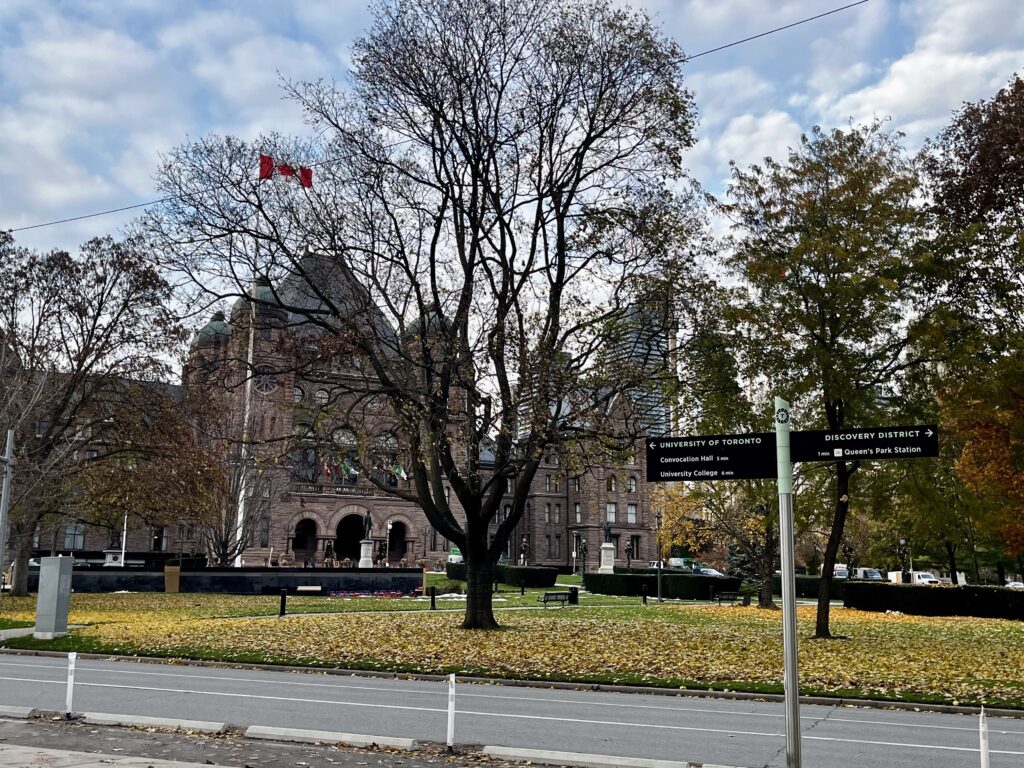
Listen to the full story here:
The University of Toronto is expanding its horizons, announcing this week that three U.S. scholars will join its roster in the 2026-2027 academic year.
Sara Seager, an astrophysicist, will work in areas of physics, chemistry and astronomy, while Jacquelyn Pless joins the Rotman School of Management as an economics expert, and Mark Duggan will lead the Munk School of Global Affairs and Public Policy, according to a Nov. 12 news release.
U of T plans to attract more than 100 research fellows from around the world, a move that follows the launch of an emergency fund to support projects derailed by U.S. funding restrictions under the Trump administration, the press release says.
“When a faculty or a scholar relocates, they bring their methods, their syllabus, their work culture, their ties to different parts of the industry.” said Ashika Niraula, project lead at the Canada Excellence Research Chair in Migration and Integration at Toronto Metropolitan University (TMU).
While this push to hire more international scholars signals the federal government’s ambition to position Canada as a global research hub, it contrasts with recent policies aimed at limiting the number of international students able to pursue academic careers in the country.
The announcement dovetails with the proposed federal budget, which includes a $1.7-billion pledge over the next decade to attract international researchers and expand Canada’s reach as an international education hub.
The Trump administration’s tightening of research funding and restrictive policies was a motivating factor for several other academics to leave the U.S. this year. Most prominent is philosopher Jason Stanley, who has spoken with multiple news organizations about his decision to move to Canada — “to raise my kids in a country that is not tilting towards a fascist dictatorship,” he told the Guardian back in March.
The author of How Fascism Works was a professor at Yale University before relocating to Canada. “I don’t see it as fleeing at all, I see it as joining Canada, which is a target of Trump, just like Yale is a target of Trump,” he said.
“Politics can be a catalyst in the decision to move to Canada, but it usually interacts with the research conditions or policy uncertainty in general,” said Niraula.
Niraula emphasized the importance of providing incoming scholars with stable pathways to staying in Canada.
“We need to give them that certainty, either in terms of immigration policies, like permanent residency pathways, or in terms of making sure that they have career progression when they start working here,” she said.
What does this mean for other international talent?
At the same time as the government is encouraging more international scholars to come to Canada, it’s slashing opportunities for students in the early stages of their careers.
International study permit targets for 2026 have been reduced by 49 per cent, with a projected cap of 150,000 for 2027 and 2028, according to Immigration, Refugees and Citizenship Canada.
“[The Canadian dream] is way less sustainable than it was a decade ago. It is slowly dying,” said Mithun Sivakumar, a fourth-year engineering student at TMU.
Canada isn’t quite as attractive an immigration destination as it used to be, Niraula said.
“Canada used to be an attractive destination for highly skilled migrants, but with the recent changes, I would say the instability and uncertainty in general, I think it’s kind of losing that image,” she said.
Yash Kerpal, a third-year mechanical engineering student at York University, applauds Canada’s push to attract international professors. “I think it’s very important for Canada to have more diversity,” he said
When asked about the recent change in policy around permits, neither Kerpal nor Sivakumar opposed restrictions. However, they emphasize the need for Canada to deliver on the promises made to the students it has already admitted.
“That’s a really frustrating process for someone who’s put all their life savings into getting an education here,” Kerpal said.
In producing this story we used Otter.ai.
